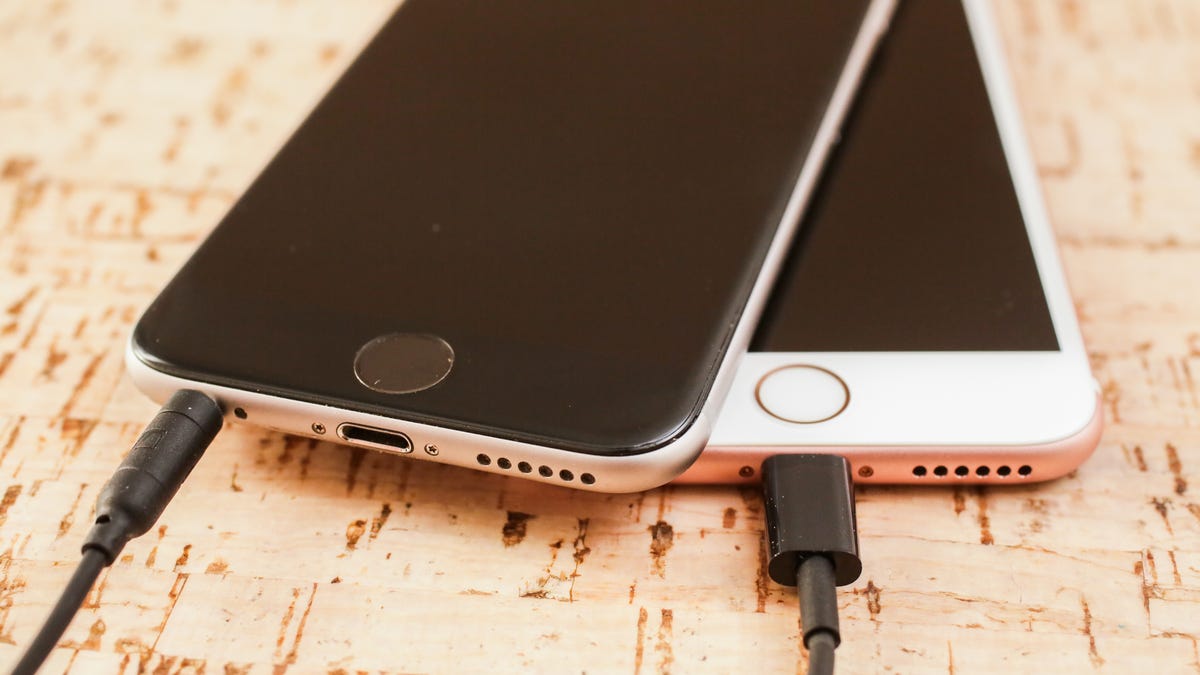Why you'll soon forget the iPhone ever had a headphone jack
Commentary: Some are viewing Apple's removal of the headphone jack on the iPhone 7 as a traumatic -- or even tragic -- event, but it may work out better than you think.

Over the last few months I've written about the persistent rumors that Apple will remove the headphone jack on the next iPhone.
Every time I write about it, readers' comments have been generally negative, with some folks threatening to boycott the iPhone when Apple drops the headphone jack.
Well, from all indications, including published reports citing "people familiar with the matter" and some early iPhone 7 cases I've received, it's the end of the road for the iPhone's headphone hack.
But don't panic, folks.
After being on the fence about the issue these last few months, I've come to the conclusion I can live without the headphone jack. And I think you can, too.
Here are the reasons why:
Bluetooth headphones have improved and are increasingly affordable
The last two years both consumers and manufacturers have embraced wireless products. According to data from research firm NPD, in the first six months of 2016, Bluetooth headphone sales (in terms of dollars) surpassed those of wired headphones for the first time, accounting for 54 percent of dollar sales. Prices also came down by 5 percent, according to NPD.
That same NPD data has Beats and LG leading the way with a combined 65 percent share of the market (LG sells a ton of those Tone neckband-style Bluetooth headphones), with Bose, Jaybird, and Skullcandy rounding out the top 5.
While Bluetooth sound quality still doesn't quite measure up to that of a wired headphone, it's getting closer. And more importantly, Bluetooth headphones are becoming more reliable, with easier set up and fewer dropouts.
In short, wireless headphones are the future.
The Lightning port becomes the headphone jack
The one big complaint about Bluetooth headphones is that they're powered and require charging. The battery dies, so does the sound.
More headphone makers are touting a quick-charge option, where charging the headphone for 10 minutes gives you an hour of juice. But if you're someone who's anti-Bluetooth and want to stick with you standard corded headphone, the Lightning port is where you'll plug in. You'll just need a short Lightning to 3.5mm jack adapter, which will add a couple of inches to your headphone cord. (The iPhone won't be first here: The new Moto Z and Moto Z Force phones have no headphone jack, and ship with a USB-C to 3.5mm adapter.)
The big question is whether Apple will include the adapter with the iPhone 7 (and iPhone 7 Plus), a set of wireless EarPods (rumor has it they'll be called AirPods), or a set of Lightning EarPods that may include a noise-canceling feature. I'm betting on the Lightning EarPods (though I wouldn't hold out hope for noise-canceling models in the box).
Needless to say, people will be angry if Apple charges $20 or $30 for a Lightning to 3.5mm dongle, which is quite possible. And a standard dongle would mean you can't charge the phone and listen to wired headphones or speakers simultaneously.
But the good news is there will be plenty of other companies that offer cheaper solutions, although some of those cheap solutions won't be certified. (Apple charges a licensing fee for anything that plugs in the Lightning port and officially blesses it with its MiFi certification -- "Made for iPhone/iPod/iPad.")
It's also worth noting that since the Lightning port is a power source, some Lighting headphone adapters -- and Lightning headphones -- will be able to incorporate such features as the aforementioned active noise-cancellation or a DAC -- digital to analog converter -- that would turn the dongle into a headphone amp. Such accessories would draw a little power from your phone, but they shouldn't severely impact your battery life.
And for all you dongle haters out there, just remember: The cable on existing headphone cords is already a dongle of sorts. If it's another two to three inches longer, what's the big deal?
Apple has removed hardware from other products and we've lived through it
Some people cried when Apple removed the floppy drive and DVD-ROM from its computers. Some cried when Firewire went away. And they cried when the 12-inch Macbook had only a single USB-C port. And when Apple moved from the then-ubiquitous 30-pin adapter to Lightning, obsoleting a zillion charge cables and dock accessories? There was considerable sound and fury.
The newest MacBook (top) is the Apple laptop with the fewest ports.
But we adapted. And you'll adapt to living without the traditional headphone jack. And if you don't, well, you can always buy an Android phone with a headphone jack.
Or stick with the iPhone 6S, 6S Plus and SE. They still have that good old 3.5mm jack, and they should remain on sale for at least the next year.

